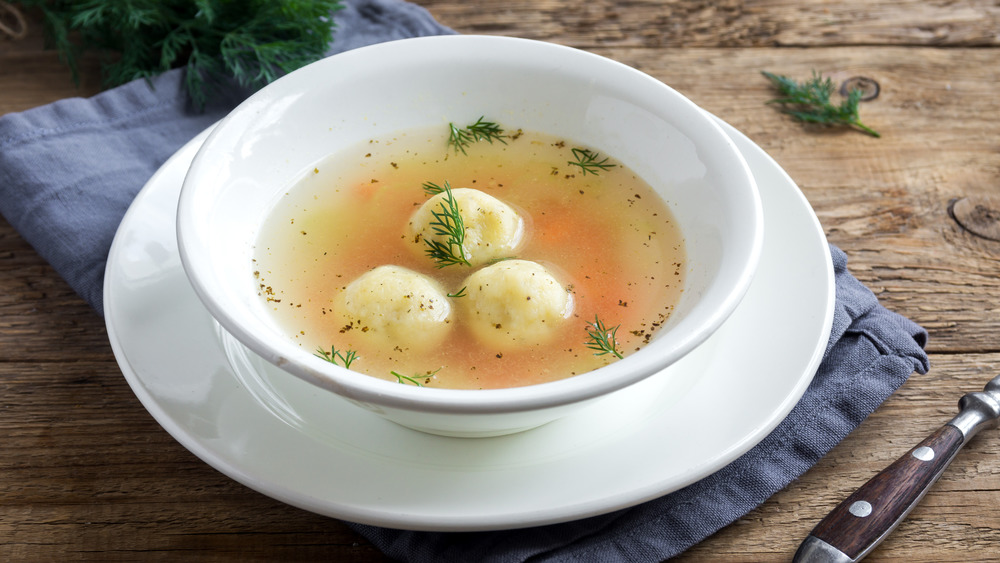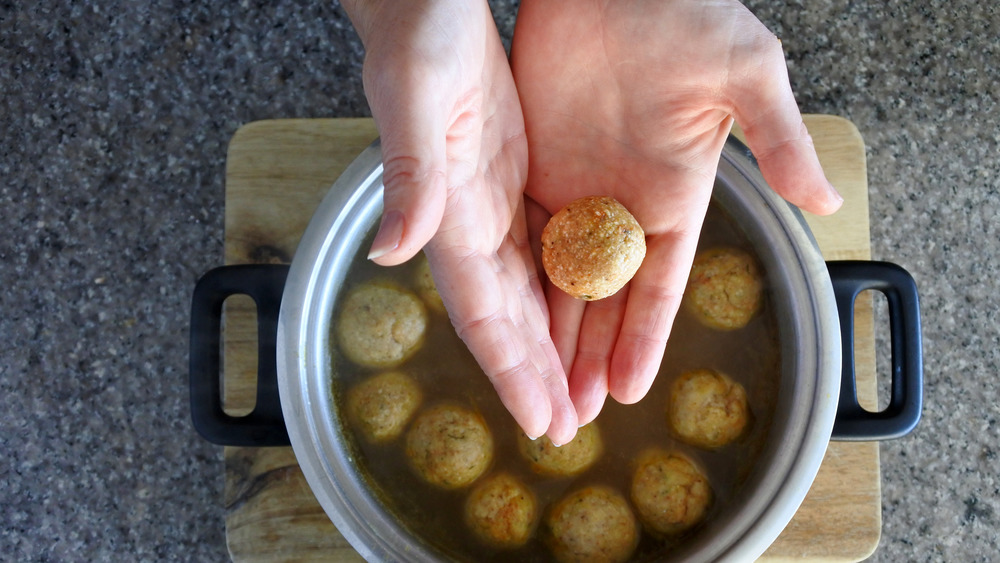Here's Why Your Matzo Balls Are Falling Apart
You don't have to celebrate Passover to love matzo balls. After all, what's not to love? Whether you're sick, homesick, or just need some solid comfort food, matzo ball soup is always a good choice. That is, if you know how to make it. Unfortunately, not everyone does, which is why we often end up with matzo balls that are either too dense or so light they're breaking apart in our bowls.
Luckily, you don't need to change your go-to recipe to completely alter the outcome of your matzo balls. According to The Daily Gazette, the difference between fluffy, floating matzo balls and dense, rock-like ones is more a matter of the technique.
Their first recommendation for making matzo balls that float, but don't fall apart, is to be light-handed when forming them. Resist the urge to squish, press, or otherwise compact the matzo ball dough into dumpling shapes, since this will change their eventual texture (via Bon Appétit).
From there, it's simply a matter of not rushing the process. For instance, be sure to let the matzo balls rest in the fridge for as long as the recipe specifies. Don't try to rush the cook time, don't cook too many at once, and don't even start cooking them until the liquid has reached a rolling boil. Or, in the words of cookbook author Risé Routenberg, "Don't take shortcuts. If you don't have enough time to finish them, don't start them," according to The Daily Gazette.
How to get the matzo ball texture you want
You've probably already heard of the standard tips for making your matzo balls lighter in texture, like using seltzer and baking soda in the dough. In fact, according to recipe tester Daniel Gritzer, the proportions of these ingredients can make all the difference (via Serious Eats). Adding between ¼ and ½ teaspoon of baking soda to the mixture, along with some seltzer, or even a stiffly beaten egg white, could give your matzo balls the airiness you desire more reliably.
Or, you can skip these additions and let the matzo balls sink to the bottom of your soup. This isn't necessarily a bad thing, either, as many prefer dense matzo balls because they taste more of matzo and schmaltz (rendered chicken fat), rather than the broth they absorb.
Regardless of your density preferences, it's still important not to rush the matzo ball-making process, especially the refrigeration. After all, letting your dough rest in the fridge gives the matzo time to absorb the liquid in the recipe and bind together. Without this crucial step, your matzo balls will certainly fall apart before you even serve them.

